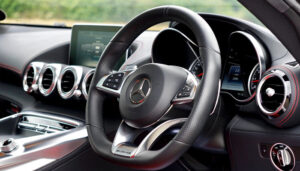When Japan and the European Union concluded their negotiations on a free trade deal last year, they created the largest open economic area across the globe. After all, the deal combined the 28-nation bloc with the third largest economy in the world. The great news for many car enthusiasts is that the deal removed the 10 percent EU tariffs on imported Japanese vehicles, as well as the 3 percent rate commonly applied to car parts. So, if you’re in Europe and if you want to import left hand drive vehicles, this would be the best time to do so.
There are many reasons why anyone in the United Kingdom would want to import a vehicle from Japan. Perhaps, they found that there are many used Japanese cars that are well-equipped yet highly affordable. On the other hand, some Europeans also found obscure models from Japan that are not offered in their country. Some drivers are permanently moving to Europe, and they’d want to take their current vehicle with them. It wouldn’t be surprising why more Europeans are interested to learn how to buy cars from Japanese auto auctions.
Whatever your reason may be, there are different procedures you have to review when you are planning to import a car from Japan to Europe. So, make sure you check out this guide to learn everything you need to know about car importation in the UK.
What does it mean to import a car from Japan?
When you are importing a car from Japan, it means that you are shipping a vehicle that was originally built and sold in that country. Depending on your preferences and the regulations in your country, the car may be imported by sea, air, or by road. Of course, it is legal to import a car, as long as you follow the right procedures and regulations.
Getting an imported car insured
In Britain, there are various insurance providers that should be able to offer coverage for imported cars. However, it is worth noting that not all these providers will approve your request, especially if the vehicle was intended for a market outside of Europe.
It can be challenging to find an affordable insurance for imported vehicles. It only gets easy when you import a car from another European country. It is worth noting that the insurance premiums can be determined by the performance specs. So, if you are contemplating about importing a sports car, you have to carefully consider your budget as it is likely for you to get a substantial insurance premium for this type of vehicle.
Benefits of Importing a car from Japan
There are several reasons why you should opt to import a car from Japan. One of the reasons is that it lets you choose from interesting vehicles that you would otherwise never get to drive if you only focused on the local market. It is worth noting that outside of Europe, you can potentially find some rare and desirable models.
The other benefits you can get from importing a used car from Japan is that you will find a more affordable alternative than what’s available in the local market. As we all know, Japan is known as a world leader in automotive technology. So, it wouldn’t be unusual to find better equipped or even more luxurious vehicles. When you compare their price to their European equivalent, you will find that Japanese used cars are more affordable.
Importing a car to Europe
There are two primary categories for vehicle imports in Europe—EU imports and Grey imports. Cars that are originally manufactured for non-EU countries fall under the second category. On the other hand, EU imports refer to cars that are built inside the European Union countries. Sometimes, they are also referred to as ‘parallel imports’.
A huge percentage of Grey imports coming to the United Kingdom are vehicles that were originally intended for the Japanese market. Japanese vehicles are generally designed with right-hand drive. However, you can still import left hand drive vehicles from this country. What’s great about Grey imports from Japan is that they are more affordable yet built to a higher spec.
If you are contemplating about importing a vehicle to Britain from Japan, you have to remember that cars from this country are built under different technical regulations. As such, they would have to go through modifications and testings under the Single Vehicles Approval (SVA) scheme. This would ensure that the car meets environmental and safety standards before they can be legally driven in the United Kingdom.
Requirements for permanent car imports
Whether you’re importing from Japan or another EU country, your vehicle must be approved to meet certain safety and environmental standards. If you’re importing within Europe, this wouldn’t be a problem. After all, all cars sold in this region fall under the European Community Whole Vehicle Type Approval. Before a vehicle is released in the European market, it has to meet the minimum standards for emissions, crash protection, brakes, lighting, and steering, among many other factors.
Your car should also hold a European Certificate of Conformity. This is something you can request from the Japanese vehicle dealer. This certificate confirms whether the car you’re importing is a left-hand or a right-hand drive. If you’re importing a left-hand drive car, you also need to secure a certificate of Mutual Recognition. This ensures that your vehicle has been approved for use on UK roads. You can contact the Vehicle Certification Agency (VCA) to know whether the car you’re planning to import qualifies for such certificate.
When importing a vehicle from Japan, you have to use the Notification of Vehicle Arrivals (NOVA) service and let the HM Revenue and Customs (HMRC) know about your shipment. You can create a Government Gateway account to do this online. The NOVA Will provide the necessary details that will help the HMRC determine if you need to pay any duty or VAT on the car you’re importing.
You would also have to register your imported car with the DVLA. It is worth noting that when you import a vehicle from Japan, the foreign plate number has to be switched to a UK plate number before you can drive it. You can only register your vehicle once you’ve paid for all the duties and VAT.
If you want to know more about importing a Japanese car to Europe, do not hesitate to contact Carused.jp. We will assist you throughout the buying process, making it easier and hassle-free!



